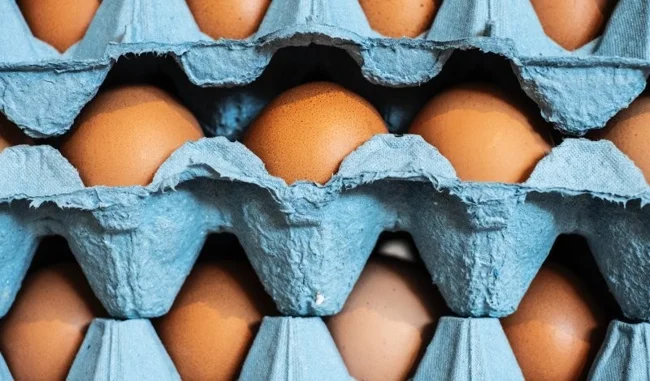Experiment: What Happens if You Eat 720 Eggs in a Month (4 photos)
A Harvard doctoral student ate 720 eggs over 28 days to track changes in blood cholesterol levels. Nick Norwitz, 28, shared an unexpected result of his research. 
During the experiment, he ate only twice a day: from 10 to 11 a.m., and then at about 6 p.m. Each meal consisted of 12 eggs. After the experiment, the level of low-density lipoproteins (the "bad" cholesterol) in his body decreased by 20%. This disproves the common belief that eating eggs increases cholesterol. 
Nick holds a PhD in Metabolism from Oxford University and is currently studying at Harvard University.
He chose eggs for his study because they are associated with cholesterol.
"I wanted to prove that cholesterol from eggs does not necessarily increase cholesterol in the blood," he says.
The experiment was carried out at his own expense.
About 80 percent of your total daily cholesterol production occurs in your liver, and recent research suggests that eating eggs, if you're otherwise healthy, doesn't raise your cholesterol or increase your risk of heart disease.
For example, earlier this year, researchers at the Duke Clinical Research Institute in Durham, North Carolina, found that people who ate 12 eggs a week had the same cholesterol levels after four months as those who ate fewer than two. 
Cholesterol is an organic substance of fatty nature, necessary for normal metabolism.
Low-density lipoproteins are considered "bad" cholesterol because they can accumulate as plaque in the arteries, increasing the risk of heart disease and stroke.
Although the main source of cholesterol is the liver, it is also found in food: one large egg contains about 186 mg, and all of it is in the yolk.
"Eggs get a bad rap," says Nick. "A lot of people think that if you have high cholesterol, it's because you eat a lot of them, so you should cut down on them. But the body is actually very good at regulating things like cholesterol in your diet."
The UK's National Institute for Health and Care Excellence recommends that people at risk of coronary heart disease limit their cholesterol intake to 300mg a day. Nick was consuming around 4,750mg daily.
He fried his eggs, boiled them, made them into omelettes. He added spices and ingredients. He ate proteins like meat and fish, but kept his diet low in carbohydrates.
"I was very low-carb for the first two weeks - less than 20g a day, no more than an apple," he explains. "After two weeks I increased that to 60g a day - that's like two bananas."
When you're on a low-carb diet, LDL levels usually go up because your body starts burning fat. But when you add carbs, LDL drops faster because you're getting more energy from the carbs. That explains why my cholesterol only dropped 2% in the first two weeks, and then dropped another 18% after the second week. 
"I was sleeping seven hours a night, eating 3,200 calories a day, and my weight stayed the same. I was exercising about an hour a day, usually weight training. I'm a very active person and pretty athletic. I'm 5'8, slim, and my BMI [body mass index] has never been over 22."
Were there any side effects, like bloating or constipation?
"Nothing like that," Nick says. "It seems like my body has adapted to eating a lot of fat and protein. My girlfriend sleeps with me, she would definitely tell me if she had any unwanted symptoms."
His previous supervised experiments involved eating 12 Oreos a day on a high-protein diet for 16 days to demonstrate how the carbs from the cookies could lower cholesterol. His LDL dropped by more than 70%.
Norwitz emphasizes that his goal was not to encourage people to eat the cookies or stop taking statins, but to understand how it affects the body.
The experiment did not discourage him from eating eggs. He still eats about six a day.
"For me, a nutrient-rich egg breakfast is much better than traditional carbohydrate meals that spike insulin and promote fat storage. Eggs are a healthy food. If you use them as your main source of protein, then eating four eggs in one meal, for example, for breakfast, is absolutely fine."





















